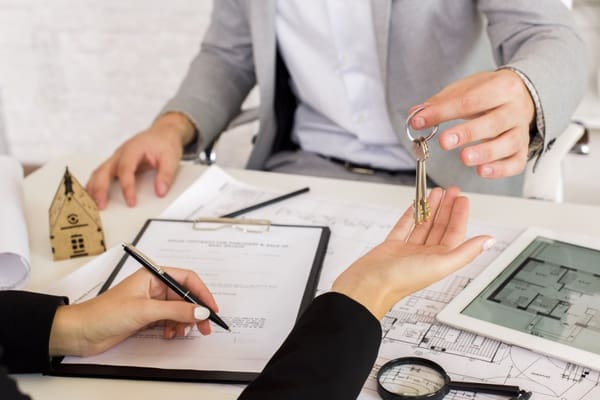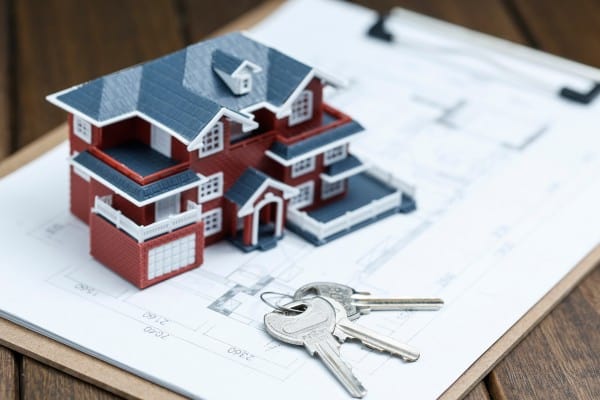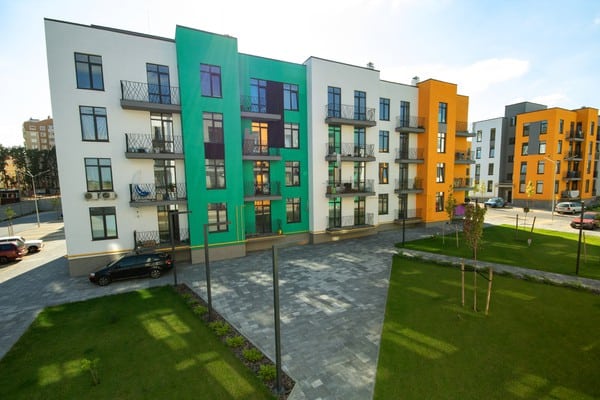
Aside from bringing the pandemic response to the next level, President Joe Biden is also on a mission to make housing more affordable to the public. With that in mind, Biden’s $15,000 credit for first-time home buyers is now being readied to roll out. This week’s Question of the Week answered by David Sidoni, the How to Buy a Home guy, is what is the deal with this credit? Who is eligible? How does it work? When will it become a law? And what do you have to do to get your money? Furthermore, David explains why this proposed credit may conflict with the administration’s democratic ideals and how it may impact the future’s housing demands.
—
What’s Up With Biden’s $15,000 Credit For First-Time Home Buyers? Question Of The Week
What Is The Biden $15,000 First-Time Home Buyer Credit, And When Will It Start?
The potential Biden’s $15,000 tax credit for first time home buyers. I know it sounds good. Sign me up. Is it going to happen? How does it work? Let’s talk about it.
—
What is up? It’s a crazy market out there. I took out four buyers, wrote four offers, and had been working my face off all week long trying to help these folks. I’m so glad you joined me. I’m David Sidoni, the How to Buy a Home guy. It’s been crazy, but I made a promise to all of you. I said I was going to do a Question of The Week every Friday. That means I had to put all the deals together but I’m here with you. This is the new weekly episode and it’s written by you, clueless you. I know you’re here because you’re trying to figure out how to buy a home. You’re wondering, “Why am I right in the show?” It’s because you reached out for information and I will humbly oblige. If you’re new to the show, smash that subscribe button and you can hear all these questions answered every week for free. I promise I’ll do it because it doesn’t matter what time of night it is, I’m going to get it done.
The topic is chosen by you, the readers out there, is what is this I keep hearing about $15,000 to buy my first house? Is this for real? I knew I had to talk about this one because I had somebody tell me that they saw something about it on TikTok. This is out there, gang. I did my research, and I went and looked, copy and pasted a whole bunch of stuff from the internet. I got my bullet points out of it. It was 47 pages long when I started, so there’s a lot. Some of you might have seen or read, but a lot of this stuff I found on the real estate subscription services that I pay for. I paid to digest volumes of this boring crap, so then I can whittle it down and summarize it for all of you. You can call me Captain CliffsNotes at your service. Are those even still a thing? Are you still using those for your term papers? Are they still happening? Email me and tell me if you use CliffNotes. I got to find out.
$15,000 First-Time Home Buyer Tax Credit
President Joe Biden campaigned on a $15,000 first time home buyer tax credit. Normally, the tax credit comes a little bit after you file your taxes, but this one is different. The credit is going to come in a bill with some other policies and other items that we’re going to discuss here. They’ve spoken vaguely about student loans, but I don’t think that one’s going to have any chance to roll into this one. It’s not clear how the student loan stuff is going to work, but the way it’s set up, there are a few policies they’re trying to put in this bill. If they happen, they’re going to be game changers for first time home buyers.

This would help buyers either with overcoming the struggle in saving for the down payment. If they figure something out with the student loan stuff, that debt forgiveness will help you get a higher monthly payment and get approved for a better loan. For now, as of February 2020, the $15,000 seems to be a bit more concrete. We’re going to look at that and see how that affects you. The credit was part of the original housing platform that Biden and Kamala ran on. It’s getting a lot of buzz and the administration is ready to multitask at this point. They’ve been spending a lot of their first few weeks attacking their number one priority COVID, but now they’re ready to go on this.
The first part of the information I’m going to give you is according directly from JoeBiden.com when they laid out their housing plan. It says, “Building off a temporary tax credit expanded as part of the recovery act. This tax credit will be permanent and advanceable. Meaning, the home buyers receive the tax credit when they make the purchase, instead of waiting to receive the assistance when they file for taxes the following year.” Biden is proposing a $15,000 first time home buyer tax credit, which could be accessed immediately by the buyer. In effect, it works like downpayment assistance for you. The housing market is red hot but it is slim pickings out there. There are seriously not a lot of homes for sale.
In fact, our supplies are at a 50-year low, but the sales are the highest they’ve been since 2006. Our numbers is 6.76 million homes sold in 2020. That means supply and demand is way out of whack. When you combine that with the low mortgage interest rates, then we’re going to get rising prices. This proposed law and tax change is being floated to help with the affordability in home ownership. Biden’s plan has several proposals that could take the pressure off both from the home prices and the supply of the homes for sale, with the changes potentially coming in three areas important to you, the first time home buyer. The first one is $15,000. That’s the biggie. Number two, helping the home construction market get us some homes to buy because we need them. Number three, some potential home loan changes.
[bctt tweet=”In 2020, over 6 million homes were sold despite the risks of the pandemic.” via=”no”]
Let’s go through them one at a time. Number one, give me my money. Where’s my $15,000? First-time buyers are defined as those who have not purchased a home in the last three years. These are probably most of you out there. There are a few other examples like if you only owned investment property, or if your principal residence is a mobile home, then you also qualify as first time home buyer. Pretty much, if you haven’t owned one in the last three years, you’re good to go on this. If this law is implemented, it would create a permanent refundable tax credit for first-time buyers. In 2020, first time buyers made up 32% or 2.1 million homes purchased. I’m doing a little quick math and that means the government is going to be shelling out $31.5 billion. That’s just for you and that tax credit if we keep on those same numbers. That’s because you all found my show too late. You didn’t read to the seven-part series on how to financially prepare to buy your first home starting at episode 19. Now, you need Uncle Sam to give you $15,000, so you can get out of your crappy apartment.
I’m just playing. Remember, I’m the joker who in my twenties, I blew all my money on my rent and I lost about $300,000 that I could have easily gained, but I didn’t know any better. You’re here, so now you’re going to know better. A lot of the Gen Z and Millennials out there have been super bombed because they’re trying to save 20% for a down payment on a home. If you follow the show regularly, you know that you don’t need 20%, but even saving for a low down payment can be tough. We got student loans, high rents, paying off your debts from when you were young or perhaps younger because you could still be young now, back when you spent your money frivolously or like an idiot. However, you want to label it, “I’m okay. Don’t worry about it. We all had our time.”
It’s hard to save. Maybe you start thinking about it a little while ago, and then COVID hit. Now you found this show and this $15,000 could be the boost you need to help you get over the hump, get you in the front door, start owning instead of renting so you can stop paying your landlord’s mortgage and start paying your own. If the bill is pass, the funds could be accessed immediately by the buyer at the closing table. That makes that credit advanceable. You can access the funds at closing when you’re buying the house instead of having to wait to file your taxes and get the refund next year. In a way, this acts like down payment assistance.
Biden’s proposed tax credit is modeled slightly on a home buyer tax break that was in effect from April 2008 to April 2010. That was one that many of my first time buyers used when I was a couple of years into the business. It was implemented to pull the housing market out of the great recession by incentivizing people to buy homes. The tax credit addressed the total opposite of the problems that exist now. Know that this is not your 2008 tax break and it’s not the same market. It’s not the same recession. That could be a huge determining factor of whether or not they’re going to do this, how they’re going to pull it off, and what all the policies are going to get ripped and shredded, and created into some sort of bill.

Back in the first quarter of 2008, home prices were falling and now they are rising. Back then, there were five times the numbers of homes for sale that we have now. The Bush and Obama with VP Joe Biden from 2008 to 2010, that tax credit bolstered home buying when it needed bolstering in the worst way. Now, home buying is strong. What we need are some more freaking homes to be built. The plan is there and it’s set to increase your buying power. It is also hoping that when that happens, sellers are going to sell more, and then builders are going to build more.
Biden’s proposed tax credit would benefit people who can qualify for a loan based on your credit scores and debt to income ratios. You’re also almost there and you need $15,000 to get yourself over the down payment hump. This doesn’t do anything for the underlying fundamentals of being approved for a loan. You still got to have the credit scores and the debt to income ratio. It doesn’t change any of that. It gives you more money for a downpayment. The question that’s out there is, does this hurt the housing market in the long run? Is this going to drive up the already rising prices even more, and then make homes unaffordable?
Lawrence Yun, the chief economist for the National Association of REALTORS says, “Without an increase in the number of homes for sale, the result would be even faster price growth. When supply is so low, sellers take advantage of the negotiating power over buyers.” What does that mean? I’ll tell you what it means because I went out with four different people, and I had buyers put in offers $20,000 to $40,000 over the list price and they got outbid by $20,000, $30,000, $40,000. That means people are going $50,000, $60,000, $70,000 over list price for homes. In Southern California, these guys have saved their money and these were a little crazy. We’re talking $500,000, $600,000, $700,000, $800,000 homes. If you do the math and go backwards, it’s still going to be a lot.
The sellers are in that position where they can take advantage of the negotiating power and push things up. If we don’t get some more homes or if you don’t have a little help, then things could continue to skyrocket. The buyers are out there and they want to take advantage of low interest rates. They see the prices rising and they want to jump in before it gets out of control, if it’s not already out of control. If you want in on this action and you think this $15,000 is going to help you, you’re probably wondering, “David, that’s cool but when are you going to answer the question? Will this bill pass and how soon?” I don’t know. Nobody does. It’s government.
[bctt tweet=”By increasing buying power with Biden’s first-time home credit, sellers will sell more and builders will build more.” via=”no”]
I did read everything that was out there on this. I slammed it all together and here’s the summary. This is what the insiders are saying. Biden’s tax credit is more of a possibility that both Senate races in Georgia went to the Democrats and they got the tie breaker. It’s got a chance. Lawrence Yun, our buddy Larry thinks Biden’s home buyer tax credit will need to get the support from 60 senators. That’s going to be a filibuster-proof majority in the Senate. If you don’t know what that means, nod your head and say, “Dave, I get it.” Part of that means that the Democrats are going to have to choose not to use budget reconciliation. It’s going to be a game of concessions all over the place. There’s always the possibility that the Republicans might ask for a smaller credit amount.
We’ve also got Ruben Gonzalez, the Keller Williams’ chief economist. He said that it’s hard to comment on anything definitive at the moment, but he thinks that Biden’s tax credit will possibly garner bipartisan support. He said, “The challenge with the credit right now is the demand is already strong with the mortgage rates so low. Most evidence is showing that high earners have increased savings during the pandemic.” The first time home buyer tax credit seems like a good candidate for bipartisan support, but it’s still unclear if we’re genuinely going to see a bipartisan effort in Congress.
Through my reading, I saw that there were lots of economists that have gone on the record stating that with this Democrat-led senate, most of what President Biden’s tax plan that he’s floating should come to fruition. They think that the $15,000 tax credit seems to be one of the easier proposals of the tax plan to get passed. It’s going to stimulate the already hot real estate market and aligned with the low interest rate market. The majority of both parties have been in agreement with that. Our pal Larry Yun says, “Having a few Republican senators on board will help change the public perception of working across the aisle. That means getting what Biden administration wants, along with items favorable for Republicans such as expanding high-speed internet access to rural areas. Traditionally, it’s the Republican folks out there in the world, and they want to stream their Netflix too. Possibly, another favorable item for the Republicans would be a tax break for small business.”
For the record, I threw in that part about Netflix. As far as the tax breaks for the small businesses, that one makes sense because it’s a basic pillar of the Republican policies. It pretty much works like this. Republicans say, “Tax is bad. Let people keep money.” The Democrats say, “Tax is good sometimes. We help people who need help.” Even if both sides agree, some predict that the tax credit could exacerbate the inventory shortage by juicing the demand up even more, and people gobbling up all the homes. Uncle Larry says, “Only with added supply will the home buyer tax credit be effective in boosting home ownership and enlarging the middle class. Without supply, home prices jump much higher with no meaningful gain to new home ownership.”

Boosting Home Builders
That leads us to part two of the policy plan. Helping boost the home builders, so we can get some more homes out there. The nation’s home builders have had a difficult time keeping up with the demand. They were hampered because of high cost of land, labor, materials, regulations, and the ebb and flow of the market. There’s some stuff that’s happened. Let me tell you about it. The builders are concerned about the challenges that could affect sales over the next few months, particularly related to the rising construction costs. Lumber prices have tripled and are significantly adding to the cost of building a new home. Builders reported these other issues during the pandemic. There were shortages and delays in obtaining the builder materials. There were lots and the plots of land that weren’t coming online because they suspended development activity when no one knew what the heck this global pandemic was going to do.
Interestingly, they found difficulty in finding workers and subcontractors willing to report to construction sites. It was a little bit of people going, “I don’t want to be around it. There’s not a mask thick enough for me.” There are also some other stuff for the workers that I’ll get into. Single-family new builds ended 2020 with the best year in home building since the great recession increased demand. That got all the builders’ button gear, and so they did what they could even with all those challenges. The prediction is that new home construction will likely grow by 5% during 2021. That’s a good thing for all of us. That means that we’re looking to hit above one million new homes built. That’s going to be the first time we’ve done that in years.
This next part is going to sound political, but you got to trust me, it’s not. I don’t care. I’m not here for politics. This is not Trump versus Biden, Red versus Blue, Democrat versus Republican. I’m simply reporting to you what is being reported. The only reason I’m doing that is because I want to find out how it affects your ability to buy a home. My only dog in this fight is you. I’m reporting facts, not opinions. We all cruise along and we play the cards that we’re dealt. In the same proposal, the Biden administration is trying to take some steps to help the builders.
During the Trump administration, there were restrictive immigration policies that inadvertently exacerbated an already severe labor shortage for the builders. What happened was many documented and undocumented construction workers had to leave the industry during the last housing crisis from 2007 to 2012. As things started to get back up in 2012, 2013, 2014, 2015, 2016, a lot of the builders that were already shorthanded had the industry bounced back. Some of the previous documented and undocumented workers had left during the crisis. They were too freaked out to come back to the US, or were unable to legally get back in here.
[bctt tweet=”The average person buying the average home would have to save for ten years to get 20% down.” via=”no”]
With Biden immigration, there could be some policy changes that could help the builders with their labor shortage. Also during the Trump era, the trade wars hit the builders right in the gut. Prices for everything from lumber to concrete to metal all increased dramatically. Even the lumber from Canada, which is a big woodsy area with lots of wood, it got insanely expensive. Perhaps the new administration with their policies might shift in the bill or in other bills, and then the builders will be able to ramp up the building because God knows we need the inventory.
Loan Guidelines
The final piece of this three part policy potential changes, we got the tax credit, we got trying to help the builders and finally, some loosening of some of the guidelines on some of the loans. This is a big type of relief for lower income buyers. This might be able to happen quicker and easier than the home builder relief. Even if you relieve the home builders, they still got to plan and start the building. That all takes time, but if they make a change in the loan policy that happens immediately. What they’re trying to do is a drive to increase lending by the FHA. If you don’t know the FHA, that’s the Federal Housing Administration. Since 1934, they’ve been providing mortgage insurance on loans made by FHA approved lenders throughout the United States.
The FHA loan is a dope loan program. It’s an option for first time buyers. It’s a program I’ve been screaming about to anyone that would listen since 2006. The math works. You can stop renting and start building wealth with this low 3.5% down payment. FHA loans have been doing well and they’ve been making profits over the last couple of years. The Biden administration have the opportunity to talk to them and work on them, cutting some of their prices on the cost of the loan. One of the big places to cut it is in the mortgage insurance or the MI. That’s that nasty insurance that you pay when you put down less than 20%. It totally freaks out your parents, your grandparents, and all the other people who bought their homes at a 20% down.
This is controversial. I’ve said it before. I’m going to try and explain it in another episode. There’s a part of me that believes that in some situations, for people who are trying to buy a house these days, the dinosaurs who believe in that 20%, they’re wrong. I know Dave Ramsey believes in that. I know there are a lot of people out there who think that’s the way to go. I’m just saying, I’ve got the math to prove it. I’m not saying this is right for everybody, but I know that surely, it’s not the gigantic blanket statement, “No, don’t ever do it.” The old dinosaurs keep pounding into everybody’s brain. Look, 20% is awesome but I saw a study that had the last calculations that showed that the average person buying the average home would have to save for ten years to get 20% down.

The bottom line is the math has changed. I’m going to do a whole show on why the math might most likely make brilliant sense for you. Stay tuned for that. Here on board now, we’re talking about the FHA. The lower cost of these low down payment loans is going to be able to help entry-level homeowners, particularly the minority homeowners who turned to the FHA program more often. The Biden administration is going to push on that because it delivers on two of their big themes. Number one, making the American dream affordable, and number two, fulfilling some of their social justice priorities.
One way to help expand the affordability of the FHA loans is to get the big banks back into issuing FHA loans. The big banks bailed on them almost entirely after the great recession. It’s not because the loans were bad, but it was because the big banks mismanaged these loans, so they could benefit themselves, and they got nailed with enforcement actions. “No way. Big banks were screwing people? David, I can’t believe it.” This is the one time that the big banks got theirs. They got nailed with expensive settlements. That’s why your independent mortgage bankers stepped in. They’ve been crushing it with first time buyers using FHA loans for the last little while.
Getting the big banks back into FHA could not only help broaden the availability of more affordable mortgages. That would happen because the banks have deep pockets and ample capital. These big dudes are also bound by something else. The big banks are bound by something called the Community Reinvestment Act, which a lot of the non-banks are not. What that means is we’re going to satisfy two things. We’re going to get low pricing on FHA loans for people, but it’s also going to be building the communities. Banks have a statutory obligation to commit and reinvest the funds from the communities that they take deposits from. If they start taking the FHA loans from maybe communities that they haven’t before, these funds come in in the FHA low down payment loans, and then those communities that they don’t service often, they have to reinvest in those communities. That money is going to come in on the books and they have to give the payback in the form of community programs.
[bctt tweet=”One way to help expand the affordability of FHA loans is to get the big banks back into issuing FHA loans. ” via=”no”]
You see why that works for the Democrats who want to do that. These three policies all sound awesome for you, the first time buyer. Even if you don’t follow politics, you probably know that in our diverse and pretty divided country, there are going to be problems getting any bill passed that has to do with the magic word, taxes. I told you, it’s not going to be political. I’m reporting the facts to you. If you don’t know and you don’t pay attention to politics, government boils down to one major theme, big government versus little government. Taxes, that’s at the heart of those principles. Bail outs in a time of crisis are one thing. People have different opinions on that, but it doesn’t get the same fire that the words tax increase or tax cuts do. You say those words, tax increase or tax cuts, and some red politician or some blue politician is going to go agro and starts screaming about how awful this is for America.
Here’s the interesting thing. The Biden administration’s biggest obstacle, the thing that might be standing in the way of you and the $15,000, it might not be what you expect. They’re going to have to sell this to the Republicans to make it a law like all bills. There’s going to have to be some compromise, but the bigger hurdle might be selling other effects of this bill to their very own democratic base. Get this. Opening up lending to more low income and first time buyers, and then trying to create more affordable housing conflicts with some of the pillar of the democratic administration goals, specifically protecting the environment. To make housing affordable, Biden said that he’s going to push for more high density multi-family construction. In order to do that, he’s going to have to ease some of the regulatory burdens on single-family builders. A lot of those regulations are environmental, then there’s the big one, mortgage rates.
Biden or any president doesn’t have direct control over mortgage interest rates. Though his impact on the economy is surely going to influence the fed decision making, which will then in turn affect the ten-year treasury bond, which affects where the mortgage rates go. Wake up. This economy crap is important. Do you want to know if you’re going to get $15,000 or not? Pay attention. If Biden’s economic stimulus and aggressive vaccination plans lead to sustained economic growth, which we’re all praying is going to happen, then the central bank is going to be less inclined to keep throwing wads of cash into the mortgage market. That’s what they’re doing right now. The Federal Reserve has been buying mortgage backed bonds for a while, which in turn keeps the rates artificially low. That low rate or those low rates that are out there gives you, buyers, purchasing power even through the 2020 pandemic and it’s continuing into 2021.

It was a huge lifesaver for people who already own their homes. You might not know this, but there were a lot of people in 2020 that things got rough for them. They could refinance their mortgages because they could get a better lower rate, and give themselves a little COVID relief. What that did was it dropped their monthly mortgage payment. Many homeowners got their own personal bailout during the pandemic. We all got lucky, it just happened to be low rates when a global pandemic hit. According to The Economist, as the nation continues to economically recover, then the Fed is not going to need to buy up those mortgage-backed securities. That means the rates are going to go up.
Expect only a small move in the rates in 2021. They are already at the lowest they could ever be. They are thinking maybe they might go up to the mid 3% range by the end of 2021. I know that those of you who are starting to look at all this stuff are freaking out, but trust me, that’s still insanely low. There’s a couple of other proposed changes to the tax laws that might be in the bill, that likely won’t happen without a fight from reaching across the aisle, as I like to say. Parts of the bill are going to increase the rate on long-term capital gains. If you don’t know what that means, it means more taxes paid by real estate investors. I’m reporting the facts, no opinions, but many Republicans don’t like the taxes. Agree or disagree, I don’t care either way. I’m telling you, if you’re counting on the $15,000, then something has got to give on both sides.
There it is, the vague and not at all concrete answer to your question on what’s the deal with the $15,000 down payment assistance program incentive. Did you think it was going to be easy? No way. Nobody knows if it’s going to pass, but at least you heard some people’s opinions. Some people are a little optimistic about it. It’s going to depend on which ones of those things with the builders and the taxes that they end up fighting about, which they keep and which they don’t keep. It sounds like the $15,000 is something that they are going to try to put at the forefront. Nobody knows if it’s going to pass, but when you hear about it, at least you’ll have a little bit more of a clue.
The bottom line is rates for your mortgage interest are low, and they have nowhere to go but up. That means waiting means that you’re going to pay more for your house and your monthly payment. Also, prices are going up. That means waiting means that you’re going to pay more for the price of the house. If you asked this question because you want to know the answer, you’re thinking about waiting for this credit, so that you could have an extra $15,000 to help you get this deal. Do you think that you should still wait if you’re close and you could do it without it? I don’t think so. The math says no. The rates have nowhere to go but up, and the prices are going up. Waiting for $15,000, the math means that you’re probably going to lose that money in a higher mortgage payment and a higher price on your house. As I’m doing this episode in the middle of February, it’s nowhere near close to being something that’s going to be happening.
[bctt tweet=”The rates for your mortgage interest are low, and they have nowhere to go but up.” via=”no”]
If you like this Q and A format, hit me up on Instagram or you can go to my website, DavidSidoni.com and give me your questions. I’m interested in doing some of these. I’m thinking about doing some of them live on the air, and get questions from you. Look for Facebook or Instagram live events. If you haven’t done it yet, check out Clubhouse on social media. It’s a live audio group chat. I want to start hosting Q and As there. Who knows? Maybe you’re reading this in the future and there’s some other platform that’s taken over. What I can tell you is that this type of interactive social media has taken off. I’m sure Facebook or whoever else or someone else is going to get a platform for it.
For now, if you’re reading this in 2021, get on Clubhouse. I’m going to start doing live show with you as my guests. I hope that answered your question. If you got anything out of this, go ahead subscribe, rate, and review. Get on Clubhouse. DM me or text me, “I’m on Clubhouse.” Put the weirdest emoji you can find to confuse me. It will be awesome. I’m tired of talking to myself in the middle of the night. It’d be great to do these Q and A live. One more thing before I go, you can do this.
Important Links:
- CliffNotes
- JoeBiden.com
- Instagram – David Sidoni
- https://www.InMan.com/2020/12/11/how-the-biden-administration-could-help-first-time-homebuyers/
- https://www.CNBC.com/2021/01/19/biden-looks-to-give-a-big-boost-to-homebuyers-and-builders.html
- https://www.HousingWire.com/articles/potential-impacts-of-bidens-15000-tax-credit/
- https://www.NerdWallet.com/article/mortgages/the-property-line-biden-housing-plans-include-down-payment-help
- https://www.WashingtonPost.com/business/2020/12/15/how-bidens-proposed-tax-credit-could-help-hurt-first-time-home-buyers/
- https://www.HousingWire.com/podcast/a-closer-look-at-bidens-first-time-homebuyer-tax-credit/
- https://Finance.Yahoo.com/news/biden-offer-15-000-first-204040625.html?guccounter=1
- https://Magazine.Realtor/daily-news/2021/02/10/new-home-buying-rush-likely-to-continue-in-2021
This podcast was started for YOU, to demystify things for first time home buyers, and help crush the confusion. After helping first timers for over 13 years, I knew there wasn’t t a lot of clear, tangible, useable information out there on the internet, so I started this podcast. Help me spread the word to other people just like you, dying for answers. Tell your friends, family, and perhaps that random neighbor you REALLY want to move out about How to Buy a Home! A really easy way is to hit the share button and text it to your friends. Go for it, help someone out. And if you’re not already a regular listener, subscribe and get constant updates on the market. If you are a regular and learned something, help me help others – give the show a quick review in Apple Podcasts or wherever you get your podcasts, or write a review on Spotify. Let’s change the way the real estate industry treats you first time buyers, one buyer at a time, starting with you – and make sure your favorite people don’t get screwed by going into this HUGE step blind and confused. Viva la Unicorn Revolution!
Instagram @DavidSidoni
Tik Tok @howtobuyahome
